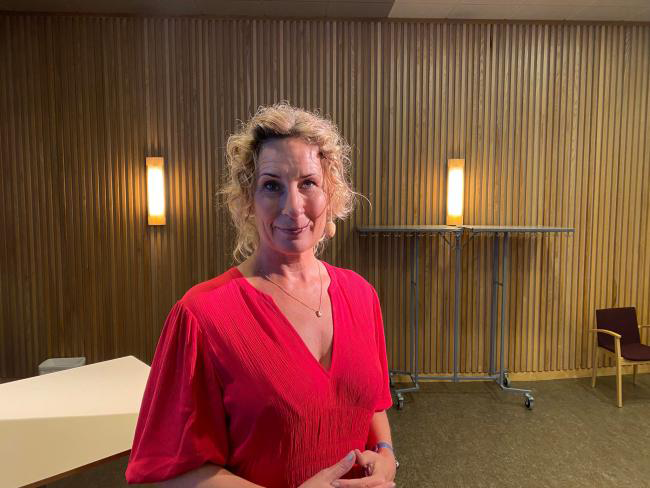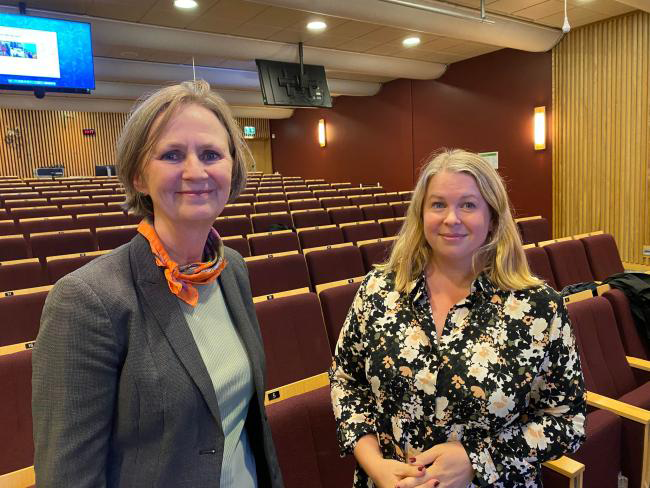Focus on consumers in a changing society during the Business School day
2024-08-07What applies in an agreement with a digital influencer and how honest are people in surveys that then guide how companies act? These were two of the questions during the School of Business Day at Karlstad University.
Cecilia Tisell, Director General of the Swedish Consumer Agency, and lawyer Emy Gustavsson lectured on the complex jungle that today’s digital consumers are exposed to. Not least, young people are increasingly tempted to enter into agreements where costs can quickly escalate.
– The range in global and digital businesses is enormous, said Cecilia Tisell. They are open around the clock, and you can compare prices and read reviews. That’s the positive side of digitalization. The negative side is that the platforms have many actors – sellers, buyers, comparison services, credit providers – and their agreements are often difficult to interpret and may also be in another language. Contact information is also scarce.
– Making wise and well-thought-out decisions in this digital trade is not always easy, said Emy Gustavsson. The consumer should not have to be digitally pushed around by a system. There should be a good balance between companies and consumers.
Personalized Marketing
Digitalization has led to extensive data collection and trading. Companies can create digital twins of consumers and read exactly what their preferences are when they shop. With that information, personalized marketing becomes a huge tool in the battle for customers.
– Consumers’ digital footprints are a commodity today, explained Emy Gustavsson. Companies can buy data from other actors to get a better picture of consumers. The positive side is that advertising becomes more relevant to consumers – but at the same time, it becomes more powerful and can identify vulnerabilities in consumers and then use them. For example, online casinos and credit companies are sharp in such marketing. They often have a service ‘that solves all problems.
Children and young people
Another example is children and young people who are an attractive target group for marketing and are particularly powerful as they do not understand and also have high trust in the digital world.
– Do they even know what ‘consent’ means? In Sweden, it is 13 years under GDPR – the recommended age is 16 years. Internationally, we have an unusually low limit, said Cecilia Tisell.
Finally, the Swedish Consumer Agency looked at some things that are becoming increasingly common in the digital consumer world.
- Travis Scott’s concert in the game Fortnite, where he performed for about 40 million viewers. Compared to Scott’s latest tour, which attracted about 1 million visitors.
- H&M has launched a virtual clothing collection in Loop Island.
- The bag company Burberry sells virtual handbags in the game Roblox.
- Virtual second-hand sales.
During the Business Schhol Day, Katarina Graffman, Ph.D. in cultural anthropology, also lectured on the theme To Believe or to Know? - How Habitual Thought Models Hold Us Back. A lecture on several methodological questions where the idea of rational logic and why it often leads us wrong when we think we understand the phenomena we want to understand, especially when it comes to consumption and sustainability. The conclusion is that humanities and social sciences are absolutely necessary to reveal what otherwise remains unclear to understand lived reality in all its complexity.
Poja Shams, senior lecturer in business administration, Andreas Prochazka, lecturer in civil law, and Germaine Hillerström, lecturer in civil law, briefly presented their research.




